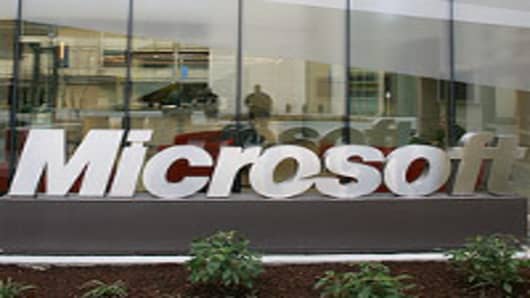Goldman Sachs downgraded Microsoft today from Buy to Neutral.
So what’s the big picture over in Redmond? There is much to be glum about when surveying the landscape of Microsoft’s product offerings:
Bing has lost billions. Ditto for Windows Mobile. X-Box has only recently emerged as a profitable platform after years of losses.
But perhaps even more troublesome than losses on specific products is what might be perceived as a failure of vision: Microsoft’s software platforms in rapidly growing markets — such as tablet computing and mobile phones — have failed to ignite the public’s imagination like the iPhone or iPad. And that may be stating the case too kindly: Next to Apple’s product lineup, Microsoft’s products often seem quaint or even clumsy. (For example: Ask your teenage children this: How many of the cool kids in study hall are rocking out to a Zune?)
So what are the bright spots for Microsoft these days in terms of products? Well, Windows of course. Microsoft Windows maintains a greater than 90 percent operating system usage share, which remains excellent news for Microsoft. But still: Is anyone you know really excited about running Windows on their laptop? Granted, excitement isn’t a word generally associated with computer operating systems — and perhaps that’s just the point.
Not to mention that the Windows franchise took a major — and some say well deserved — drubbing in terms of public perceptions with the release of Windows Vista. Windows 7 may have fixed the major flaws — but it wasn’t exactly an exciting upgrade.
Meanwhile, Microsoft Office remains the gold standard in office suites throughout corporate America. Its rich feature set and flexibility are currently unmatched by any of its rivals offerings. (Think, for example, of the programmability of the Visual Basic interface for customized corporate solutions development.)
But there are dark clouds gathering above the office suite market as well. With free desktop applications like OpenOffice and, perhaps even more threatening, simple, free, cloud computing-based solutions like Google Docs, you have to wonder if executives in Redmond should be nervous.
Make no mistake: Microsoft is an immensely powerful and profitable company. (It generated $62.48 billion in revenue, compared with Apple’s $57.09 billion; Microsoft's profit margins are 30.2 percent, compared with Apple's 21.44 percent — all statistics on a trailing 12-month basis, according to Standard & Poor's Capital IQ data.)
And let’s not forget that Microsoft was just able to raise $3.75 billion from the bond markets — including three-year notes at an ultralow 7/8 coupon rate. Based on those yields, it doesn’t seem like investors are terribly worried about the credit risk.
On the other hand, Microsoft was caught flatfooted by the internet revolution and the decline of the standalone desktop platform. (Bill Gates spoke very frankly about Microsoft’s misreading of the rise of the Internet, and the lessons the company needed to learn.) All of which raises the question: Does Microsoft have the vision, creativity, and leadership to reinvent itself for the next revolution?
Questions? Comments? Email us atNetNet@cnbc.com
Follow NetNet on Twitter @ twitter.com/CNBCnetnet
Facebook us @ www.facebook.com/NetNetCNBC


